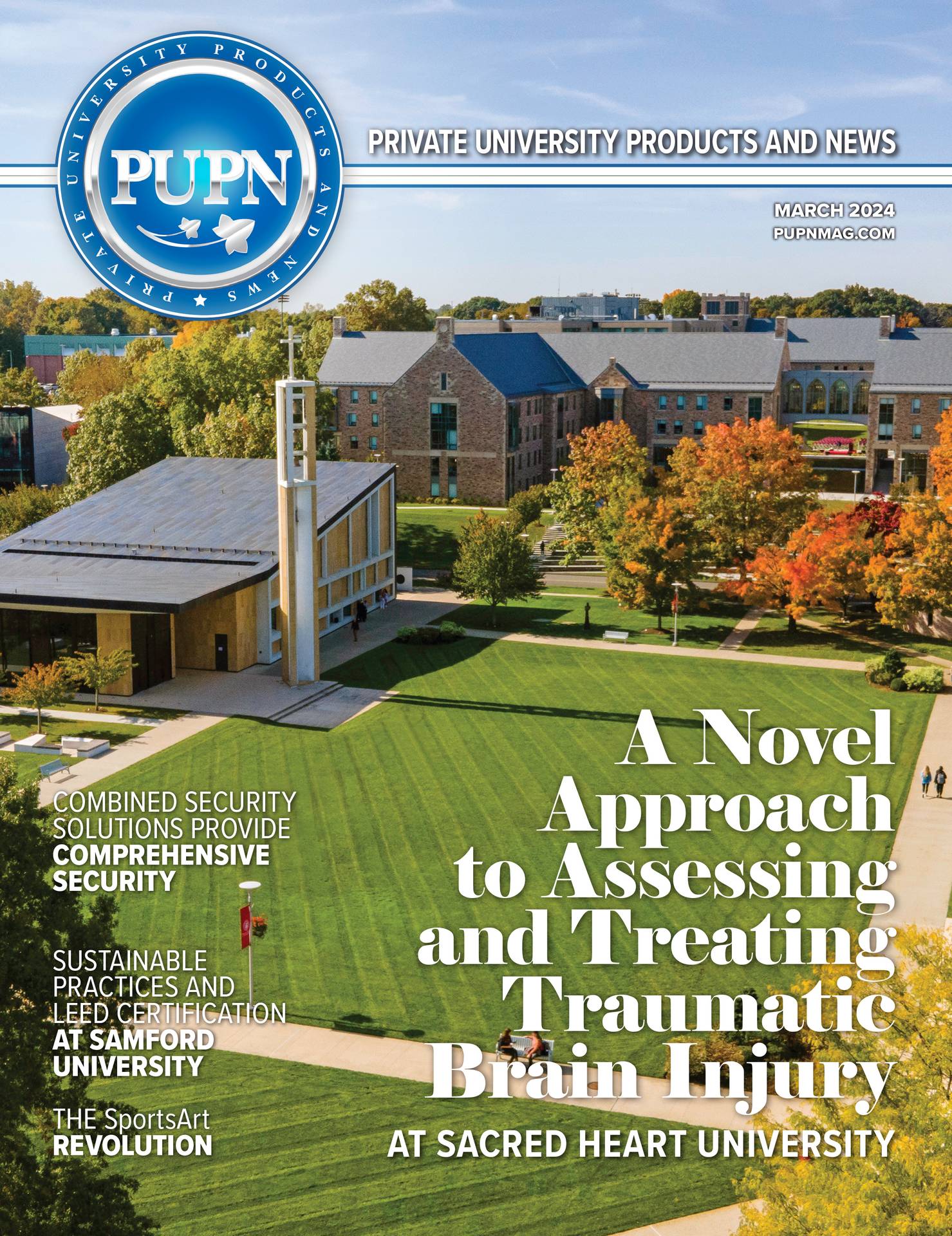In addition to his teaching and administrative duties at Point Park, he runs Sports Legends Group, a full-service marketing, finance, and law firm for professional celebrities and athletes.
The SAEM Program
At one point in his life, Steve Tanzilli’s ultimate goal was to serve as GM of a professional baseball team. After he had spent twelve years in corporate sports marketing and after earning a law degree, Tanzilli’s path turned more toward sharing the knowledge he has gained over years of experience. Though he runs his own private sports talent agency, he also spends a staggering amount of time and energy helping students reach their own goals.
A few years back, when he initially encountered young people who wanted to do what he was doing, he would ask a simple question: “Why?” He found himself growing frustrated because often the answers were too far slanted in emotional impulses and payoffs; he wanted them to understand this was a business, and a purely emotional attachment could compromise their ability to perform. Seeing that students needed more focus on the business side of the sports, arts, and entertainment worlds, he began thinking through the ideal management program to prepare students for success.
Tanzilli’s idea for the SAEM program was to offer students a variety of experiences, both educational and experiential, that would thoroughly prepare them for a career upon graduation. The SAEM program offers knowledge and training, as well as assisting students in building a professional network, which puts them in good stead for successful careers in the industry.
A Culture of Innovation
For over a decade now, the SAEM Point Park faculty, which includes talented and diverse professionals in a variety of fields, have been preparing students for careers in sports—including college sports and minor or major leagues—the arts—including theaters, galleries, and museums—and in entertainment, from radio and TV to venue management and concert promotion. SAEM program alumni are currently working as managers at event venues and stadiums, as account executives at agencies, and as business entrepreneurs.
The SAEM program offers a foundation in management and decision-making along with business principles, while simultaneously providing real world experiences through internships and similar opportunities. Students ultimately focus on a career for one of three industries: Sports Management, Arts Management, or Entertainment Management.
Having learned the business side of sports, students interested in Sports Management will graduate prepared to be a sports agent or to occupy a management position within a sports team, either collegelevel or professional. Point Park’s location in downtown Pittsburgh offers opportunities to intern with a variety of professional teams within walking distance of the campus. Those interested in Arts Management are equally well positioned for valuable internships, with by a number of theaters, museums, and ballet or opera companies all a close distance from the heart of the campus. Finally, those with an Entertainment Management focus are in close proximity to nearby stadiums, studios, theaters, and arenas, where they can utilize what they learn about the business of touring, live entertainment, and concert promotion.
Ultimately, students gain a unique business degree, in classes taught by industry professionals from across Pittsburgh, while also benefitting from frequent guest speakers, including local experts and success stories in a variety of fields. Tanzilli notes that this is one of the primary benefits to Point Park University’s downtown location, an opportunity to build connections that go beyond the classroom.
For instance, they have paired with the North Shore facility of a popular concert venue, Stage AE. Students learn from professionals working all aspects of concert promotion and event management. The partnership has resulted not only in internships for students but also in some jobs after graduation. The university has a dedicated classroom on-site, which makes it easy to hear from professionals working all aspects of concerts and see the work involved.
On a similar note, Point Park University has a new record label, a result of a partnership with Red Caiman Media, called Pioneer Records. Students not only have an opportunity to learn about commercial recording in the classroom, but they also learn in production and recording rooms to gain firsthand knowledge about all that goes into creating a successful record or launching a recording career.
Required Internships
Internships aren’t just available to students; Tanzilli considers internships an integral part of the SAEM program, thus they are a requirement for earning a degree. Students have interned at Bon Jovi and Cher Concerts, with “The Ellen DeGeneres Show,” at the Andy Warhol Museum, and with the Pittsburgh Steelers and the Pittsburgh Pirates. Students are given multiple opportunities to network professionaly as well, from workshops and conferences on campus and off, including frequent travel to Nashville and New York City.
For instance, as a 2015 graduate of the SAEM program, Rachel Winkler used her experience and education to secure a position as development operations assistant with the Lincoln Center for the Performing Arts in New York City. Though her father initially urged Winkler to get a straightforward business degree, she convinced him to meet with Tanzilli, and her father’s opinion changed after hearing Tanzilli speak to the benefits of the SAEM program, particularly the way the program mentored and prepared students for real world success. Winkler shares, “He explained that the SAEM program requires the same courses as a busines major, shadowing someone in the filed your first semester, internships, seminars, and networking opporutnities to prepare every student for life after graduation.”
Winker views all of the assignments of the SAEM program as practical and beneficial: tasks that undoubtedly resembled something future employers could require. For instance, in one assignment, she and her classmates were asked to create their own nonprofits including budget and venue; in another task, they were asked to design a marketing proposal for a band’s tour manager. In her three years in the SAEM program, Winker notes that Tanzilli was a professor, advisor, and mentor. He guided her to career opportunities and helped her connect her passions with real-world opportunities that enhance her résumé and build on her experiences.
Upon her first job interview, Tanzilli helped her prepare, ensuring she was confident before the phone interview, and later helping her work through the benefits and drawbacks to the position—to determine if this was the right place for her. She shares, “Like any other college student, I had obstacles in my personal life that tried to steer me off course, but Steve and the SAEM faculty gave me the guidance and courage to stay focused on my goals, molding and expanding the SAEM program to a new level, and it is so amazing to see and hear how many of my classmates have received jobs so fast after graduating.”
Jessica Martin, a current student of the program, believes Tanzilli has put together the ultimate opportunity for each student to graduate with a job. Martin notes, “Because of his background, experiences, and connections within the industry, he knows exactly what it takes to succeed. His leadership and vision for the SAEM program has led to the design of a curriculum that aids in the development of any business professional, all the while stressing the fact that networking is everything.”
Martin credits Tanzilli’s recommendation for helping her secure a scholarship through the Pittsburgh Pirates to attend the 2016 Major League Baseball Diversity Business Summit in Phoenix, Arizona. Recalling her first meeting with Tanzilli four years ago now, she said she knew upon meeting Tanzilli at an open house that he was going to have a tremendous and immediate influence on her life. Martin adds, “From my personal experience, special topic courses from the program in areas such as Sports Communications, Box Office Management, and electives like E-Commerce were not only relevant but beneficial when I went away: I was able to take concepts from the classroom and apply them in the industry.”
Engaging High School Students: SAEM 101
Tanzilli wanted to expand his reach beyond the traditional college students, so he also created a program where local high school seniors have an opportunity to earn credits toward a degree at Point Park University. Seniors who receive a “B” or higher in the course, completed at their own high schools, can apply those credits to a degree at Point Park.
Taught in collaboration with SAEM faculty from Point Park, the course offers students an overview of the structure of the sports, arts and entertainment management industries. Via readings from textbooks and trade publications, discussions, in-class presentations, and field trips, these students are offered a broad yet comprehensive understanding of the business of the sports, arts and entertainment industries, including marketing strategies, licensing, sales, and communications.
Students taking SAEM 101 expand their skills in critical thinking, information technology, and communication. They also practice these skills by evaluating the effectiveness of an event and writing a 360-degree report as well as a SWOT analysis (Strengths, Weaknesses, Opportunities and Threats) for the experience, preparing a report and accompanying presentation to outline their pre-professional experience, creating a professional presentation outlining key management elements learned during their experience, and explaining various roles within the sports, arts and entertainment industry, including how business is conducted within these organizations’ specific management structures. Under his leadership, Point Park is working to introduce the SAEM program in six high schools, theatre in six high schools, and Journalism in six high schools. His goal is to create “a culture of innovation.”
Real World Preparation
Ed Traversari is an Associate Professor in the Sports, Arts & Entertainment Management Program. He credits his colleague with having a “tremendous relationship” with all of the students, explaining that Tanzilli is an educator and leader who “believes strongly in preparing them for the real world after leaving Point Park.” Traversari also praises Tanzilli for assembling a strong faculty and staff, all with ties to the outside workforce, which offers students an advantage when they leave Point Park to pursue employment after graduation. Though he notes that classroom work and activities are certainly important, Traversari appreciates the multiple opportunities for interning that Tanzilli has offered students, often through relationships he has built in his own private sports business.
Paige Beal, Assistant Professor in the Point Park School of Business, shares that Tanzilli was instrumental in putting in place a “practitioner focus to Sports, Arts and Entertainment,” wherein he “consistently emphasizes the importance of our individual and collective professional network and reinforces connecting this network to school via workshops, shadowing opportunities, internships, etc.” Beal sees these connections as integral to student success for jobs in highly competitive fields. In short, Tanzilli wants students to get lessons firsthand from “people in the know,” and he wants to give them ample networking opportunities. When he assumed the role of chair for School of Business, he was able to start working through ideas for internships across all majors and developing on-site MBA programs by partnering with local businesses.
Every year when students come in, Tanzilli tells them, “Your job is to get a job.” He holds himself accountable for ensuring they are offered all the skill sets they might need, including mandatory career prep coursework, that will give them the chance to succeed: résumé workshops, mock interviews that are taped for evaluation, business etiquette and dress codes, assistance in creating a Linked In presence and tweaking existing social media footprints, and even practice in adapting to office politics and “water cooler drama.” He wants to cover all bases—from a solid educational background to internships and networking to “intangible soft skills” that could help or hurt their chances in the marketplace; he wants students to leave with all available tools for success, which means they require straight talk about where they are and where they need to be.
In order to stay focused on any tweaks or adjustments to the ongoing program development, he constantly surveys students and industry leaders to make changes to courses or offer updated skills. Rather than viewing these administrative obligations as burdensome, Tanzilli sees them as opportunities, noting, “I love it—I love the challenge. I love making a difference.”










